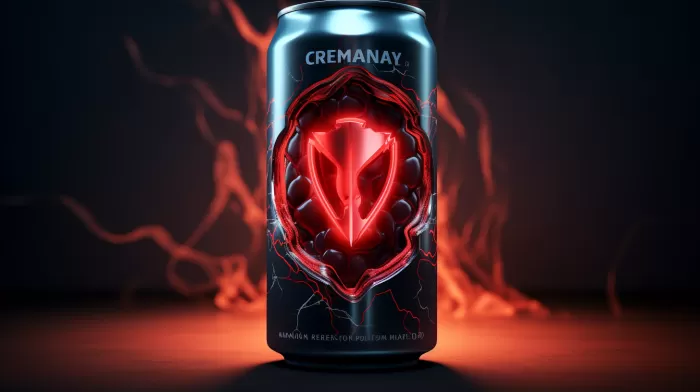Energy drinks are extremely popular and easily accessible, but the question remains: are they harming your heart? Recent research has provided insights into the potential effects of energy drink consumption on blood pressure and heart health.
In 2017, Emily A. Fletcher, deputy pharmacy flight commander from the David Grant U.S. Air Force Medical Center, conducted a study to examine the health effects of energy drinks. She found that 75 percent of the military personnel at her base had consumed an energy drink, and that nearly fifteen percent drank three cans per day when deployed. Fletcher was concerned about the potential effects of this consumption on blood pressure and heart health.
Energy drink consumption and heart health
The study involved eighteen men and women who were randomly assigned to two groups. The first group received 32 ounces of a popular energy drink containing 108 grams of sugar, 320 milligrams of caffeine, and various other compounds. The second group received a drink with the same amount of caffeine, along with 40 milliliters of lime juice, 140 milliliters of cherry syrup, and carbonated water.
When the two groups returned six days later for a second trial in which the drinks were switched, electrocardiogram results revealed that members of the energy drink group had a QT interval that was ten milliseconds higher than the control group. The QT interval is a measure of the pause between the end of one electrical impulse (heartbeat) and the start of the next. If the gap is too short or too long, it can lead to an irregular heartbeat or arrhythmia. To provide perspective, medications that affect the heart’s QT interval by just six milliseconds are required to carry a warning label.
The role of other ingredients
Energy drinks contain caffeine, which impacts the brain and can make you feel more energized, and sugar, which refuels your body’s cells and helps keep you physically active for longer periods. A more recent study on the effects of energy drinks on the heart investigated the potential for other ingredients in these beverages to cause harm.
Researchers at Texas A&M University evaluated the ingredients of seventeen different popular energy drinks and treated cardiomyocytes (human heart cells in a laboratory setting) with each drink. They observed an increased beat rate in these heart cells, which would result in cardiomyopathy (disease of the heart muscle impairing blood pumping), increased blood pressure, and other heart conditions if it occurred within a human heart.
The study identified three ingredients in energy drinks that were associated with prolonged QT intervals. One of these compounds is theophylline, a bronchodilator typically used to treat asthma, bronchitis, emphysema, and other breathing issues. Adenine and azelate are the other two ingredients linked to changes in heart muscle behavior and blood pressure.
Additional health concerns
Energy drinks can cause more than just heart problems. They have also been linked to kidney issues, as sugar-sweetened beverages are associated with kidney damage, as is theophylline, which can increase uric acid output and contribute to kidney disease.
Furthermore, consuming high-sugar energy drinks regularly can lead to obesity, diabetes, and dental problems. Studies have also found connections between energy drink consumption and increased risks of stress, anxiety, depression, suicidal thoughts, and substance abuse.
To boost your energy levels naturally, consider alternative methods and explore different resources to find healthier options for maintaining energy throughout your day.
With these mounting concerns about the effects of energy drinks on heart health and overall well-being, it’s essential to be cautious and consider other ways to obtain the energy needed to face life’s challenges.
Editor’s note: Are you feeling unusually tired? The problem could be your master hormone. When it’s not working optimally, your risk of age-related diseases rises. To reset what many call “the trigger for all disease” and live better, longer, explore resources to help you discover The Insulin Factor: How to Repair Your Body’s Master Controller and Conquer Chronic Disease.



